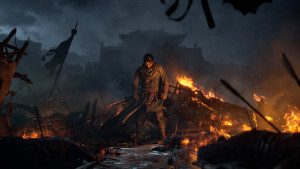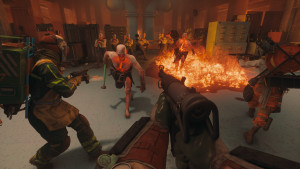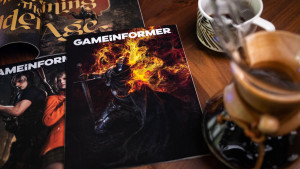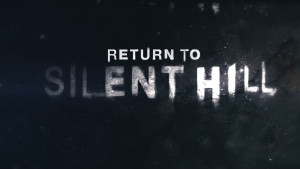Last chance for early bird pricing! Subscribe by June 25th to receive the debut issue
Eight Tips For Building A Contender In NBA 2K15’s MyGM Mode
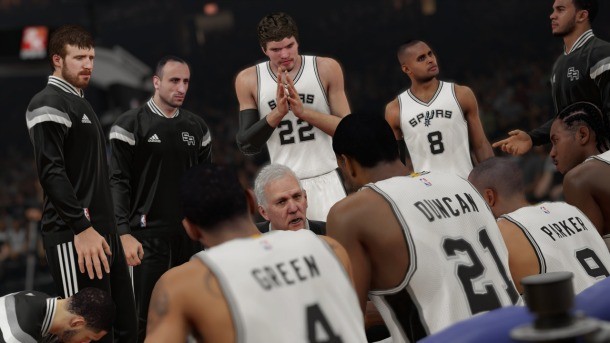
Landing a big three and putting your franchise on autopilot isn't going to yield the results you're looking for in NBA 2K15's MyGM mode. With scouting, training, finances, and contract extensions to worry about, even heavy simmers have several plates they must keep spinning to drive their organization in a successful direction. To get a leg up on the league, we spoke with Visual Concepts senior producer Erick Boenisch about strategies to put your team in the best position to win.
Build Enthusiasm
If you want pockets deep enough to let you sign that key free agent or upgrade your staff, you need to get fans through the turnstiles. Several factors weigh in to generating excitement about your team. "The key is doing things that will drive up fan interest - win games, certain press conference responses, and acquiring marquee players in free agency or via trades - and finding a sweet spot for pricing," Boenisch says.
You're also given a certain number of promotion points based on how much money you allocate to this budget. Giving away tee-shirts, bobbleheads, or running a family night can help attract an audience. Don't forget to use these over the course of the year. You can access promotions by speaking to your finance officer.
Stick To Your Vision
Every team has different needs, and every general manager has a different philosophy. Make sure you hire people and select perks that fit with your approach. If you prefer to build through the draft, make sure you have a strong scout on your payroll and invest in upgrades to your scouting department whenever you have the chance. Those who want to upgrade their rosters immediately by getting into the free agent sweepstakes should invest in a strong assistant general manager good at negotiating contracts and choose some persuasive pitches as upgrades.
Regardless of how you approach team building, investing in a decorated head coach is always a smart move. "The head coach will have the biggest short-term impact because he will have a positive or negative affect on games won or lost," Boenisch says. "Getting a guy like [Spurs head coach Gregg] Popovich actually matters."
Delegate To Improve Relationships
Several times during a season, you may be faced with a personnel decision when a player goes down with a long- or short-term injury. Unless you're in a pinch, I recommend delegating the treatment and revised rotation to the trainer and head coach. Offloading this responsibility rewards you in the form of keeping your relationship strong with the staff, which becomes critical when dealing with the press. You can always go back into the menus and tweak the approach later without receiving a penalty, as well.
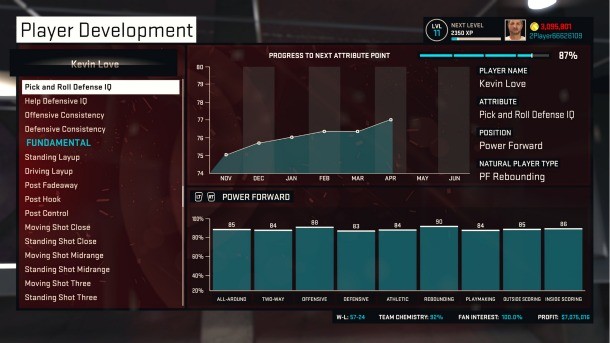
Personalize Training Sessions
Every player has different needs, so it makes little sense to create a team training regiment. If you do so, expect multiple players to constantly nag you about either ramping up the training intensity or giving them a breather. By personalizing the training for each player, you can try to avoid these annoying conversations.
"A player's age, work ethic, and whether or not they're playing a lot of minutes in games will have an impact on their training results and fatigue," Boenisch says. "By focusing on individual workout regimens, you can maximize the results for everyone on your roster."
To keep the regiments where they need to be, check your schedule every couple weeks and adjust the intensity based on fatigue levels. If you have four games in seven days, you should tone down training, and amp it up if the week is relatively open.
Tweaking individual training regiments also allows you to focus the players' improvements in areas of need. Older players with worn down bodies should focus on injury rehab, young perimeter players with poor jump shots should practice shooting, etc.
Be Thorough While Scouting
With draft classes in the hundreds and no way to predict your team's draft position until later in the season, sometimes it's tough to know where to focus your scouting. This year players have several tools at their exposure that should help make it easier to target players in positions of need. In addition to the regular scouting intel, you can peruse three different mock drafts, multiple big boards, pour over stats, and listen to chatter on social media.
"Pay attention to social media and check the scouting tab of the social media menu at least once every two weeks or so during the season to see who people are talking about," Boenisch says. "You can find a lot of helpful information here about who to scout. Then try and target the players to scout based on who you think might be good from the social media reports or who the experts think might be good in their big board rankings and mock drafts. Also, if you're targeting a top player and he does not attend the NBA Draft Combine, it's important to bring him in for a private workout so you can fully scout him and have your trainer get a look at him."
Deal Shrewdly With The Press
In a rather cynical design decision, you can't get the press to like you without throwing someone under the bus. Many questions give you an out, but if your press relations drop to zero then they ask pointed questions where you must call a owner, coach, player, or someone else out in your organization.
When faced with these lose-lose situations, call out someone who you have a great relationship with. Repairing a relationship that has a solid foundation is a lot easier than falling out with someone who already has a questionable opinion of you.
Stay Engaged
Unless you want to recreate the destitute post-Garnett era of the Timberwolves, we advise keeping tabs on everything while at the helm of your franchise rather than being an absentee GM and simming through the games with no regard to your team's performance.
"We've done our best to try and ensure that everything matters, so I would suggest just not ignoring any facet of the game," Boenish says. "Even if you are someone that just simulates a lot of games to get through multiple seasons, take some time to tinker with training, prices and everything else that you have to manage. Keep a close eye on the fatigue of the players, as tired players will get injured more, will progress slower in training and won't perform as well in games. Also, pay attention to social media."


